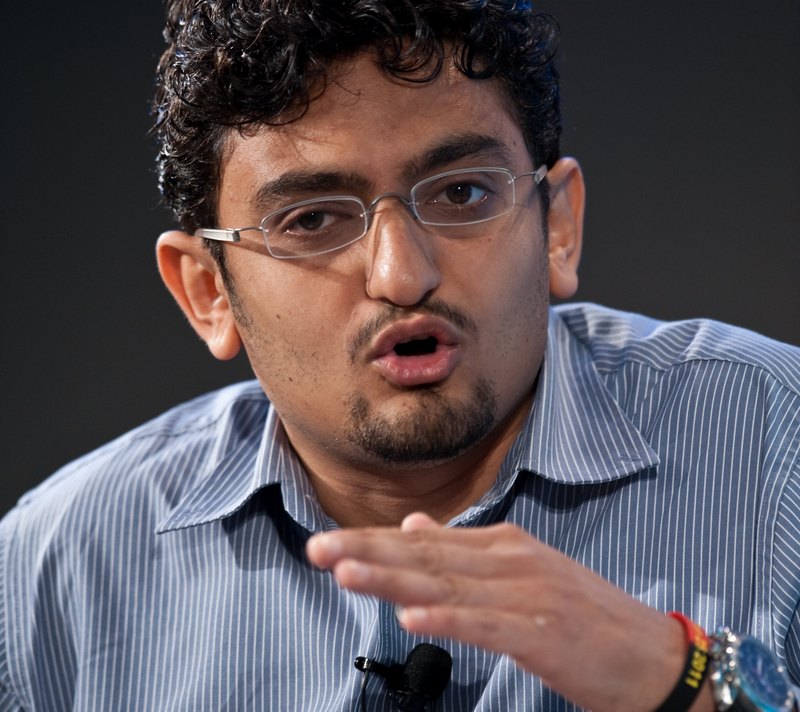CAIRO: You can t talk about the civil society without first discussing the restraints set by the government on NGOs and other civil society organizations, said Hafez Abu Seada, secretary general of Egyptian Organization for Human Rights (EOHR).
Abu Seada was speaking at a conference titled “Promoting Government-Civil Society Dialogue and Reforming Laws, adding that the government holds back resources from civil society organizations and prevents them from functioning freely.
In an attempt to reinforce freedom of association by enhancing dialogue between civil society, governments and Arab League bodies, the Friedrich Naumann Foundation and the EOHR organized the conference on Jan. 16-17 at the Arab League in Cairo.
The conference is considered the first phase of a wider project – co-funded by the European Union – that aims to enhance the legal framework of associations by empowering civil society.
This conference is a step on the road, said Salem Kawatein, chairman of the Civil Society Commission of the Arab League. The Arab League has a special interest in civil society and in order to overcome all the different obstacles that stand in the way of building a national civil society, we need to cooperate together.
Around 130 participants from different departments, such as the Council of the Arab Ministers of Justice, the Arab Parliament, the Arab Labor Organization, and the Arab Center for Legal and Judicial Research, took part in the conference. Others were representing Arab governments, civil society organizations and UN bodies.
One of the main goals is finding a dialogue between civil society organizations and the government, and establishing collaboration in the process of decision-making, said Abu Seada.
However, some were skeptical that the goal will be achieved due to the absence of government bodies in the conference.
Haj Hassan Houssein, a Member of Parliament from Lebanon and part of the Loyalty for Resistance Parliamentary Bloc, commented that while the issue itself is essential to the development of the Arab world, the real concern is whether there will be a tangible outcome.
The governments are not present, so how can we achieve results with the group that is not even here, he said.
Those who were present at the conference discussed policy papers that evaluated the status quo of Arab legislation on the freedom of association in order to formulate new ideas for reform.
The papers were prepared by the EOHR, the Arab Center for the Development of the Rule of Law and Integrity in Lebanon, the National Center for Human Rights in Jordan and the Center for Coalition and Transparency (AMAN) in Palestine.
One of the main topics discussed was the heavy interference of the government in the functioning of the civil society.
Talal Shoukry, deputy general of the workers at Al Tagammu Party, explained that even though the law allows for the establishment of workers syndicates, the Egyptian government fiddles with the laws and makes it difficult for workers to establish a syndicate that can negotiate with their employers.
According to Sayed Hanafi, from the Nasserite Party, establishing a political party is a rigorous process. Once established, the government exercises its false right to interfere at any time by forcefully restraining the party.
He continued by saying that if the government keeps repressing people’s freedoms then they will eventually explode, suggesting the future possibility of an uprising against the government.
We are on the outside while the government is on the inside, said Ahmed Abdel Hafez, vice president of EOHR, who added that even as civil society comes up with alternatives, the government will still disregard them.
Despite participating at the conference, many were skeptical about whether or not it would spur any substantial reform in the Arab world.
I don t believe that there will be any results considering the current political reality in the Middle East, said Houssein.
Hanafi agreed, saying, I m not very optimistic about the outcome of this conference. We are used to having a lot of discussions but we have evidence from previous trials that the government does not listen, so we can only hope that one day it will.
The government has no interest in altering the current situation, said Ahmed Fawey, from the Egyptian Liberal Party.
The Friedrich Naumann Foundation is a non-profit, non-governmental organization that promotes liberal policy and politics with its national partners in Jordan, Lebanon, Egypt, Palestine and Syria, with cooperation from the Civil Society Commission of the Arab League.

